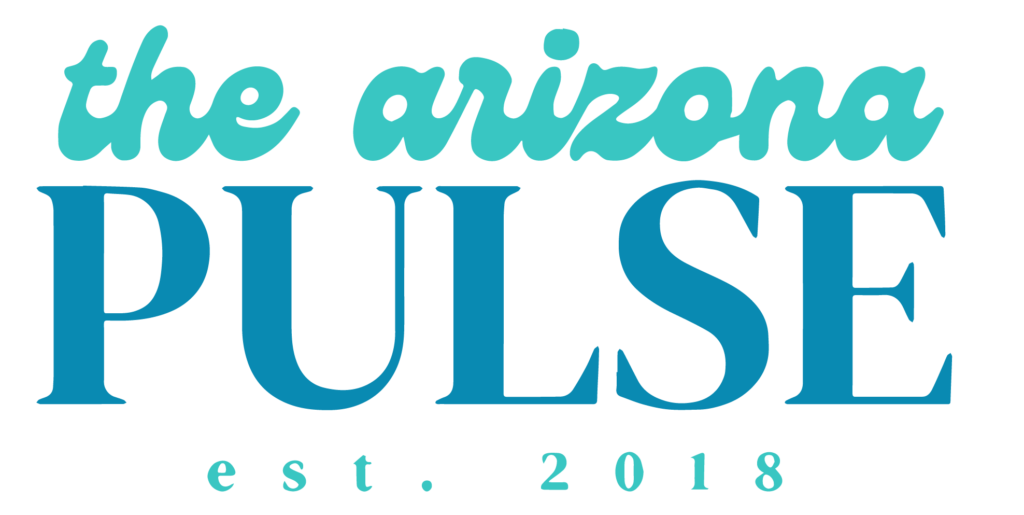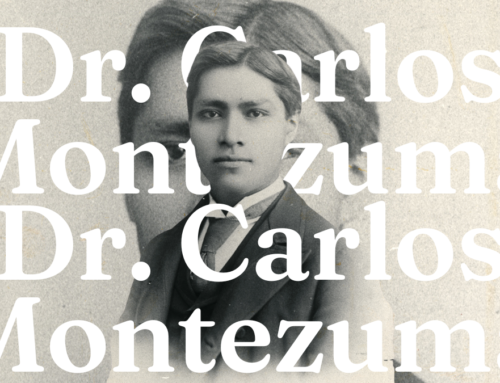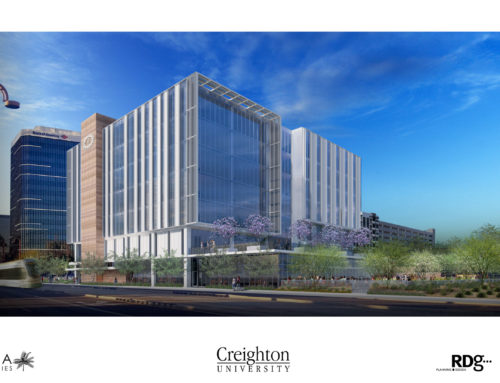Written By: Michael D. Dake, MD, Senior Vice President, UA Health Sciences
A career in medicine is more than a white coat, scrubs, appointments, electronic records and long-hours of dedicated hard work: It is finding the best path to improve the lives of our patients. It also is our ability to engage in lifelong learning that ensures the most compassionate and precise care for our patients.
Our state and nation continue to face a critical physician shortage. The University of Arizona Health Sciences is addressing this shortage by preparing the most diverse, comprehensively trained physicians through innovative curricula, multidisciplinary training, and community outreach.
Our two UA Colleges of Medicine are building high school pipeline programs to offer hands-on opportunities in research and community engagement that prepare our students to lead successful careers in medicine.
Pre-professional Pipeline (High School, Undergraduate, and Graduate) Programs:
Our health-care pipeline programs offer extraordinary opportunities for high school students, giving them early real-world experience in STEM-related health fields.
The UA College of Medicine – Phoenix offers the hands-on lab experiences through Summer Scrubs and Saturday Scrubs, health career exploration programs for high school students and summer internships for students with an interest in research to work side-by-side with faculty members. The college also hosts Connect2STEM, the largest STEM outreach event in Greater Phoenix, attracting 7,500 kids and their families and inspiring them to consider careers in Science, Technology, Engineering, Math, and Medicine.
At the UA College of Medicine – Tucson, the longstanding Med-Start program works to address the critical shortage of a diverse health-care workforce by providing high school juniors, selected from throughout the state, with opportunities to explore health careers and college opportunities. For undergraduate and graduate students, the college offers several programs: AZ – PRIDE, BLAISER (Border Latino and American Indian Summer Exposure to Research) and the FRONTERA Summer Internship (Focusing Research on the Border Area), which provide students from underrepresented backgrounds from across the nation and in Arizona an opportunity to learn from many of the UA’s renowned physician-scientists through summer coursework and hands-on, project-driven research experiences.
A Direct Path to Medical Careers
The UA College of Medicine – Phoenix’s Pathway Scholars Program and UA College of Medicine – Tucson’s Pre-Medical Admissions Pathway (P-MAP) Program provide clear direction for disadvantaged students. The knowledge they gain during these one-year programs prepares them to be more competitive medical school applicants as they earn masters-level biomedical research degrees. And with successful completion of the program, these students gain conditional admission to UA Colleges of Medicine in Phoenix or Tucson.
Medical School Training:
Students at the UA College of Medicine – Phoenix begin their clerkships earlier than most other medical schools and through its newly developed Longitudinal Patient Care Course, third- and fourth-year students work in interprofessional teams to follow a cohort of patients for two years. In addition, each student must complete a “scholarly project,” which spans their four years of study, in order to graduate.
The UA College of Medicine – Tucson’s curriculum is among the nation’s most progressive. UA medical students in Tucson interact with a patient on their first day of medical school and continue to evaluate patients weekly during the pre-clerkship curriculum. In addition, students participate in small professional learning communities called “societies” and are provided faculty mentorship to improve their interview, physical examination and patient-care skills.
The UA College of Medicine – Tucson and Phoenix provide several distinction tracks of study and dual medical degree programs in business, public health and biomedical research.
Graduate Medical Education (Residency and Fellowships):
As part of our landmark 30-year partnership with Banner Health, more than 1,000 resident-physicians in Phoenix and Tucson have the opportunity to train in Banner’s three university medical centers in Phoenix and Tucson.
With more than 300 resident-physicians and fellows in the UA College of Medicine – Phoenix enrolled in our nine residency programs, Banner – University Medical Center Phoenix has been training resident-physicians and students for more than 50 years.
The UA College of Medicine – Tucson oversees 59 accredited residency programs with more than 700 resident-physicians and fellows training at more than 35 sites and offers a Medical Spanish/Health Care Disparities Distinction Track for resident-physicians and fellows.
Continuing Professional Development:
Continuing medical education is vital to our lifelong learning approach. The Office of Continuing Medical Education (CME) at the UA Colleges of Medicine in Phoenix and Tucson provides a wide range of educational activities for physicians and other health professionals, including courses on medical error prevention, medical ethics, risk management, patient safety, professional responsibility, cultural competency and pain management, among many others. Many of these courses are required for licensure or renewal of licensure in several states.
The professional development of physicians is a lifelong commitment that builds on opportunities to learn emerging science, apply innovations in clinical settings and expand our understanding of care for an increasingly diverse patient population. The UA Health Sciences understands that commitment and continues to build a robust continuum in medical education. Our state deserves nothing less.
Michael D. Dake, MD:
Michael D. Dake, MD, directs strategic integration of undergraduate and graduate education, research, service and clinical activities in the UA Health Sciences colleges, centers, and clinical affiliates.
Dr. Dake is a leading researcher, clinician, teacher, and administrator. He is internationally known for pioneering image-guided therapies and novel approaches in interventional therapy in the fields of vascular imaging, venous thromboembolic disease, aortic aneurysms, and dissection. Dr. Dake made medical history with the implantation of the world’s first thoracic stent-graft in 1992 and his groundbreaking research with CT angiography and stent-grafts has re-written medical and surgery textbooks.
Prior to joining the UA, he served at Stanford University as Professor of Cardiothoracic Surgery and Director of the Catheterization and Angiography Laboratories at Stanford Medical Center, where he spent much of his career. Previously, he served as Chairman of the Department of Radiology in the Virginia Health System.
He is a graduate of Harvard College and Baylor College of Medicine, where he completed an internship, residency and chief residency in internal medicine. He pursued fellowship training in pulmonary diseases followed by a residency and chief residency in radiology at the University of California San Francisco. He went on to complete subspecialty training in vascular and interventional radiology at UCSF.
As a member of the UA’s senior executive team, Dr. Dake works collaboratively with teams throughout the UA and with Banner Health to build the UA’s competitiveness in education, clinical care, and biomedical research.







